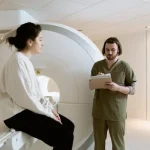In a quiet lab where microscopes once buzzed with activity, Emma, a seasoned lab technician, stared at a gleaming robotic arm analyzing a sample. She wondered, “Could this be my future replacement?” It’s a question resonating across laboratories worldwide as AI continues to revolutionize industries. But will AI truly replace lab techs, or will it work alongside them?
The Growing Role of AI in Laboratories
How AI is Transforming Laboratory Operations
Artificial intelligence has made incredible strides in automating routine tasks in labs. From analyzing chemical compositions to managing data records, AI offers unprecedented efficiency. For example, AI tools can now identify pathogens in a fraction of the time it takes human technicians.
- Automation in diagnostics: AI algorithms detect diseases more accurately by analyzing complex datasets from medical imaging and tests.
- Data analysis at lightning speed: Where humans might take hours to analyze results, AI can complete the same task in seconds, reducing human error.
With advancements like these, labs are seeing improved productivity. But does this mean lab technicians are being pushed out?
Key Advantages of AI Over Humans
1. Speed and Precision
AI operates 24/7 without fatigue, providing quicker and more accurate results than humans in repetitive tasks. According to a study by Nature Biotechnology AI systems correctly diagnose illnesses at a 90% success rate compared to an 85% rate for human technicians.
2. Cost Efficiency
Replacing manual tasks with AI saves time and money. Laboratories equipped with AI tools report a 30% reduction in operational costs, making AI an attractive solution for many organizations.
3. Standardization
Unlike human technicians, AI ensures consistent outcomes, particularly for repetitive and high-stakes procedures. For instance, in pharmaceutical research, AI guarantees uniformity in drug trials, which is critical for regulatory compliance.
Challenges of Replacing Lab Techs
Despite its advantages, AI isn’t without its limitations.
Ethical Concerns
Replacing lab technicians raises ethical questions about job displacement. Can we justify the loss of skilled professionals for the sake of efficiency?
Human Intuition vs. AI Logic
While AI excels in data analysis, it lacks the intuition and critical thinking skills that lab techs bring to complex cases. For instance, diagnosing a rare condition might require insights beyond the scope of an algorithm.
Maintenance and Costs
Implementing and maintaining AI systems come with high upfront investments. Small-scale labs might struggle to adopt these technologies due to budget constraints.
Collaboration: The Future of Labs
How AI and Lab Techs Can Work Together
Rather than viewing AI as a replacement, it’s more realistic to see it as a partner for lab technicians. By handling repetitive tasks, AI frees up technicians to focus on more analytical and creative roles.
Examples of Collaboration:
- AI systems analyzing raw data while technicians interpret the results.
- Lab techs training AI models for specific procedures, ensuring accuracy and relevance.
Reskilling Lab Technicians for the AI Era
As AI becomes integral to laboratories, technicians must adapt by learning how to work alongside these tools. Online courses and certifications in AI and data analytics can prepare lab professionals for the future.
Will AI Completely Replace Lab Techs?
The question, “Will AI replace lab techs?” has no straightforward answer. While AI is undeniably revolutionizing lab operations, it cannot replicate the problem-solving abilities and empathy of human professionals.
Statistics on AI Adoption in Labs
- 70% of labs globally have adopted some form of AI for routine tasks. (Source: McKinsey & Company)
- By 2030, AI is projected to manage up to 60% of diagnostic tasks, leaving the remaining 40% to human oversight. (Source: WHO)
Conclusion
AI is undoubtedly reshaping the role of lab technicians, but it’s not about replacement—it’s about evolution. With the right balance, AI and human expertise can coexist to create more efficient, innovative, and impactful laboratories.
FAQs: Will AI Replace Lab Techs?
1. Will AI completely replace lab technicians in the future?
AI will not completely replace lab technicians. Instead, it will automate repetitive and time-consuming tasks, allowing lab techs to focus on more complex and analytical work. Human intuition and problem-solving skills remain essential in many lab scenarios.
2. What are the benefits of AI in laboratory work?
AI brings numerous benefits, including faster data processing, reduced errors, cost savings, and improved standardization. It enhances efficiency and allows labs to handle larger workloads with precision.
3. What challenges do labs face when implementing AI?
Some challenges include high implementation costs, ethical concerns about job displacement, and the need for human oversight to address AI limitations in complex problem-solving.
4. How can lab technicians stay relevant in the AI era?
Lab technicians can stay relevant by learning new skills such as AI model training, data analysis, and using AI tools effectively. Pursuing certifications in AI and related fields can help them adapt to this technological shift.
5. Is AI accurate enough to replace human judgment in labs?
AI is highly accurate in performing specific tasks like data analysis and diagnostics, often surpassing human accuracy in certain areas. However, it lacks the intuition, creativity, and critical thinking that humans bring to complex or rare cases.





